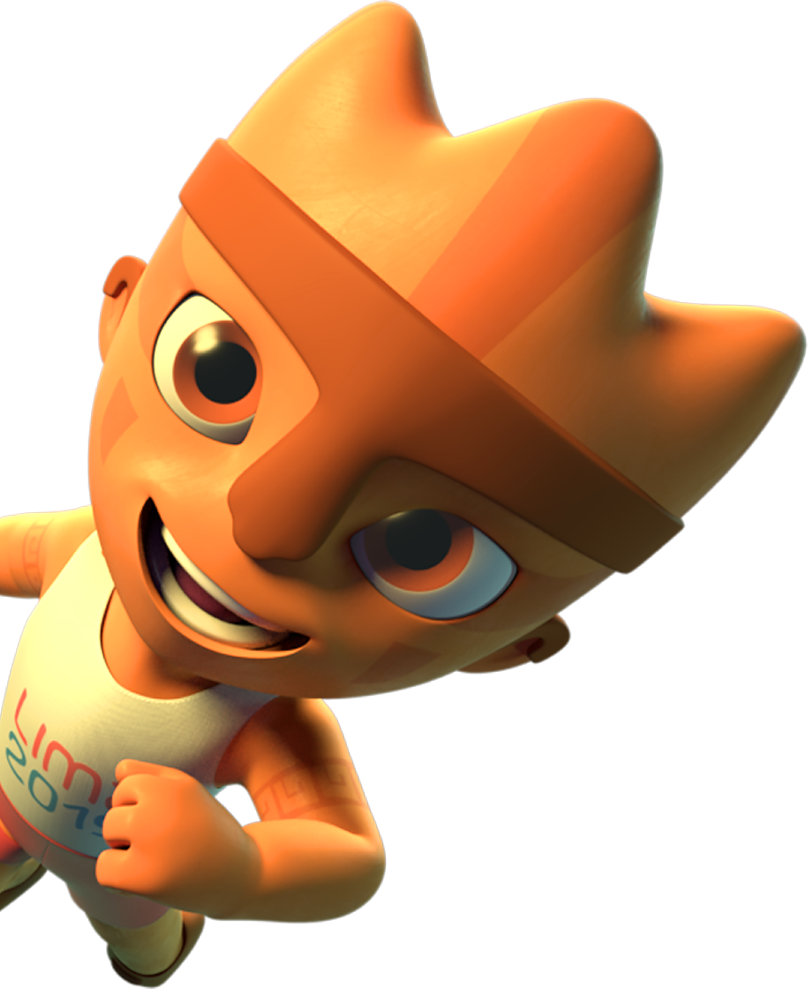
X MENU

At six years old his uncle took him to play at the Villa Maria del Triunfo Sports Center. Gonzalo Bezada arrived with a tennis ball and a racket on his hands without knowing that a his passion for this sport will be born there and last until now.
At 19 years old, he is still living in Villa Maria del Triunfo, just one step away from where the competitions will take place.
“It seems that it was yesterday when I entered the Andrés Avelino Cáceres Sports Center and it was almost a desert. Now, it has been completely transformed into a new one. Everyone is really proud of what I am achieving and I am happy because the Pan American Games will be held just at the corner from my house, where I was trained and where I was practically born” stated Gonzalo.
Gonzalo started practicing athletics and played football too. However, fronton was the discipline that motivated him to make a career in sports. “I started winning tournaments and I started to like it, I met people that practiced the same sport and I stay with them.”
“Now rackets have evolved, there's more people playing and the competition is tougher, which is good for the sport” says Gonzalo.
Training has been hard and rigorous throughout the whole year, working almost eight hours a day. “We train on the court three hours in the morning, two hours in the afternoon and at night, we have a couple of hours of physical training. We are lowering the intensity now because the competition approaches," said Gonzalo.
He is a Pelotari
Those who practice Basque Pelota are called Pelotari. Gonzalo started at Paleta Fronton and started Basque Pelota some years ago, specifically in Frontenis.
“I discovered Basque pelota in the 2013 Bolivarian Games that were held in Villa Maria del Triunfo, where the first and only court in Peru is located.
The difference between Basque Pelota and Fronton is "the court dimensions and the type of shots. The fronton ball and the basque pelota ball are made of different kinds of rubber” he said.
Another important thing is the competition level. "Fronton gave me the basis for the same style of shot, but basque pelota requires a a little more strength. A match can last up to four hours and in the end you are almost full of leg and arm cramps” pointed out Gonzalo.
Pursuing Dreams
In the next days, he will travel with the delegation to Mexico for a sporting exchange. “We will show them the Peruvian fronton and they will show us the frontennis. That´s a good thing because the are the world champions” says Gonzalo, who also said that Chile and Argentina will be his tougher rivals.
“I see myself at the the Sports Center, singing the national anthem and winning a medal in my country, that´s my first objective. Then, I want to be the world champion. Now I am part of the PAD —High Performance Program — of the Peruvian Sports Institute, and many doors have opened for me since then. The president of the International Federation of Basque Pelota has invited me to France to live there” he said with excitement.
Basque pelota competitions will be held from August 4 to 10. Athletes from 11 countries will compete for the ten gold medals being contested. The competition is divided in six events for men: pelota de goma - doubles (trinquete), pelota de goma - singles (fronton), frontennis - doubles (fronton), pelota de cuero- doubles (fronton), hand - singles (fronton) and peruvian fronton singles. Women will compete in four events: pelota de goma - doubles (trinquete) - pelota de goma - doubles (fronton), frontennis - doubles (fronton) and peruvian fronton singles.
“Frontennis matches, my discipline, will be held from nine in the morning and I want to invite everyone to cheer for us, so I can dedicate a medal to my mother and to Villa Maria del Triunfo people.” said Gonzalo.










